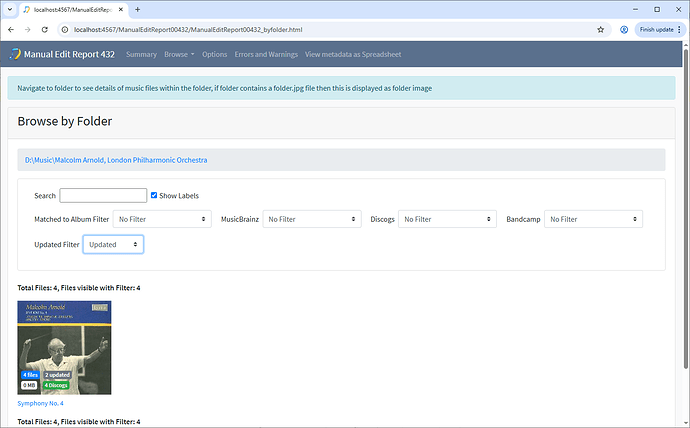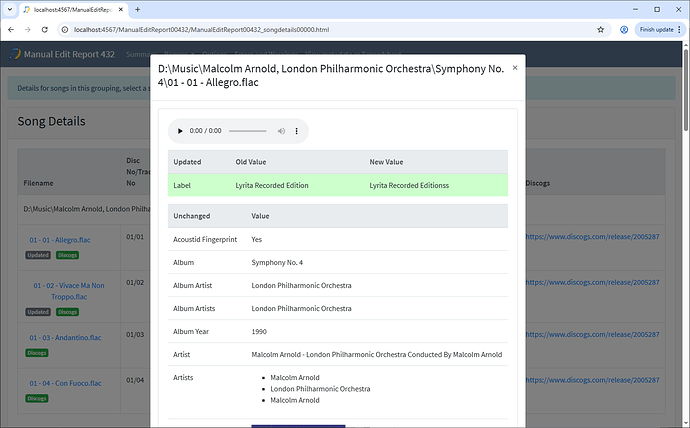Sorry for the reply to your question being years later Paul, I’ve only just noticed you asked  . I really find picards use of colour helpful to indicate how closely matched the song or release is compared to it’s original metadata. It makes seeing issues extremely quick and helps me navigate a plethora of songs more rapidly. Picards colour system is what’s kept me from abandoning it all these years.
. I really find picards use of colour helpful to indicate how closely matched the song or release is compared to it’s original metadata. It makes seeing issues extremely quick and helps me navigate a plethora of songs more rapidly. Picards colour system is what’s kept me from abandoning it all these years.
To add further improvements i really think (correct me if songkong already has it) the ability to automatically apply changes if the confidence of the match is either 95%+ or as an alternative (and it being more like Picards colour system for similarity of new and original metadata) if the similarity score between new and original metadata is 95%+ similar (or whatever score /match confidence the user chooses). You could go even further as to allow this in preview mode too and the score can be adjusted and results reparsed on the fly so users can quickly see an overview of how accurate the matches/similarities are and then (semi automatically i suppose) authorise an auto apply. You could also allow even more granular choice by providing tick boxes next to releases and even individual songs so that you can add extra songs/releases or remove them from the auto apply (useful for the odd song or release that you KNOW is incorrect but 99 other releases/songs are perfect with your current confidence score adjustment).
I think this would revolutionise songkong in its control that it offers users while still allowing it to be an automated solution too.


